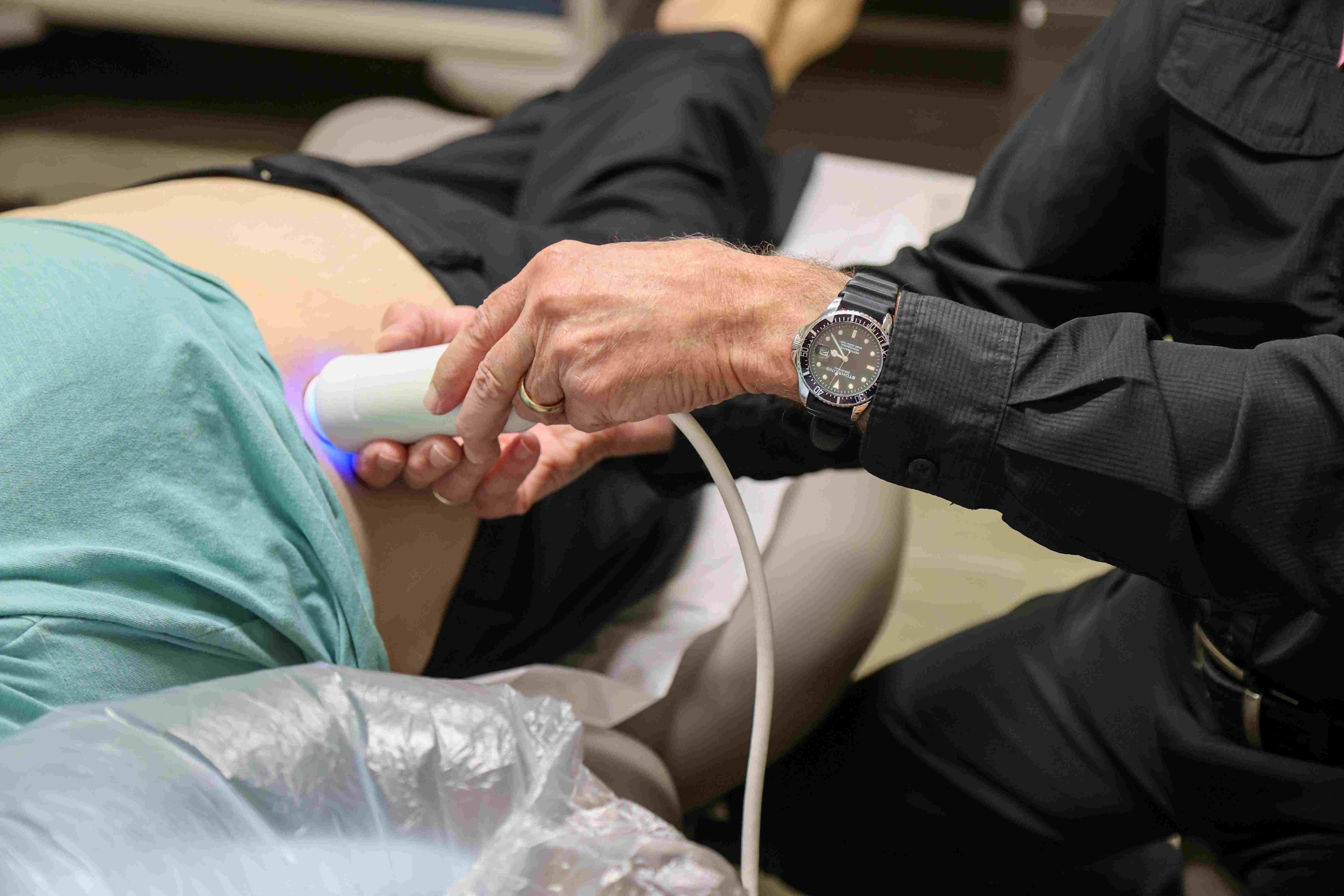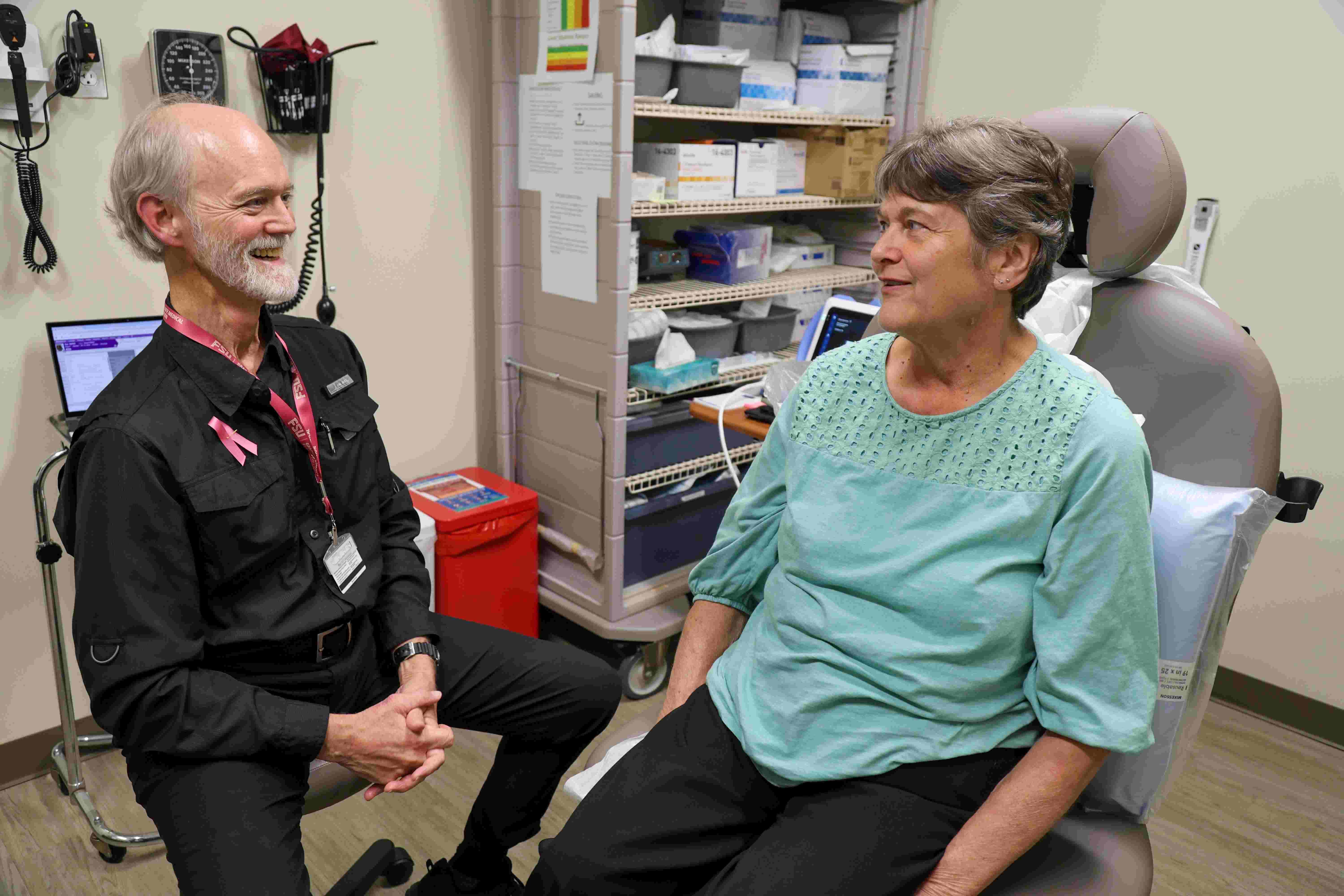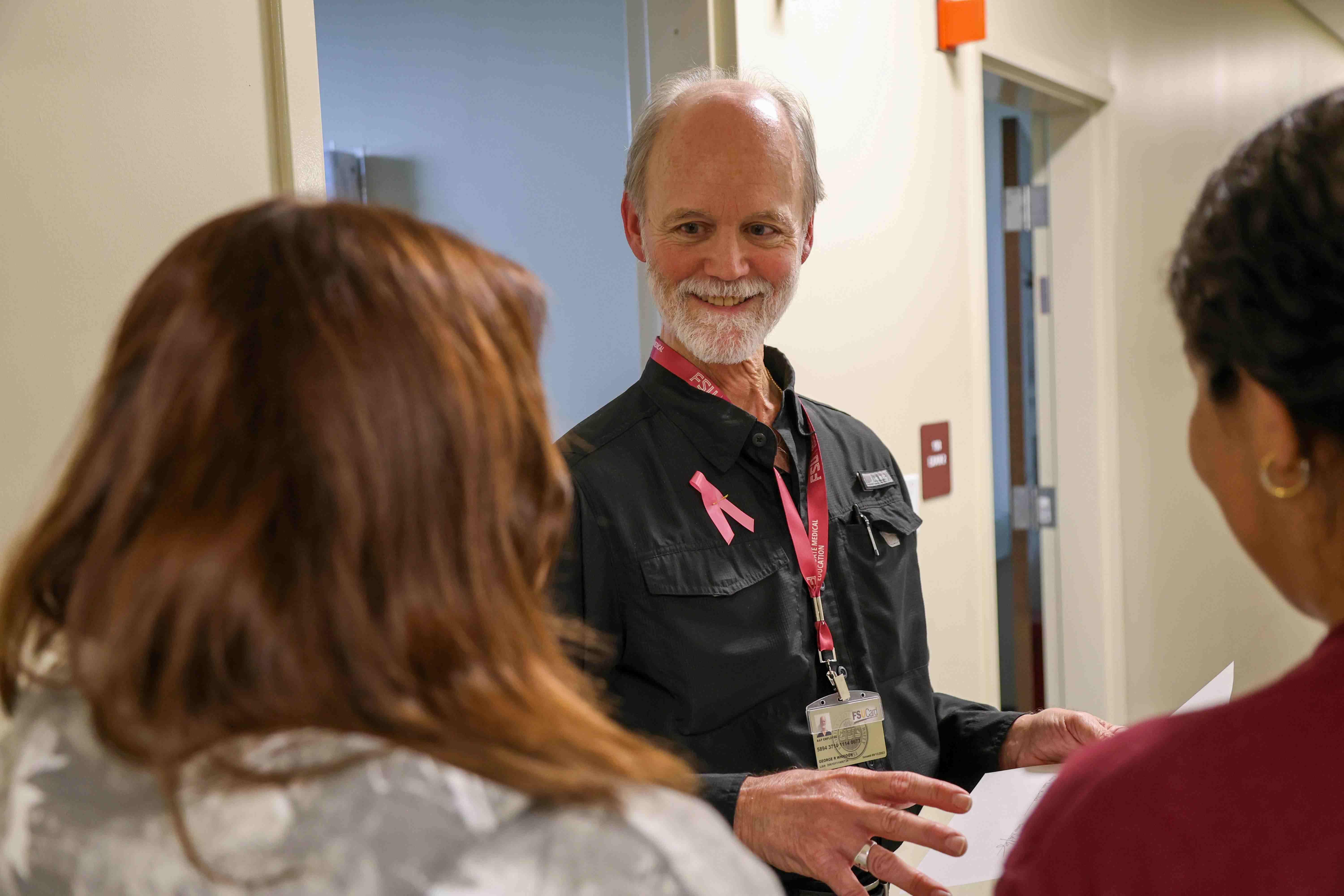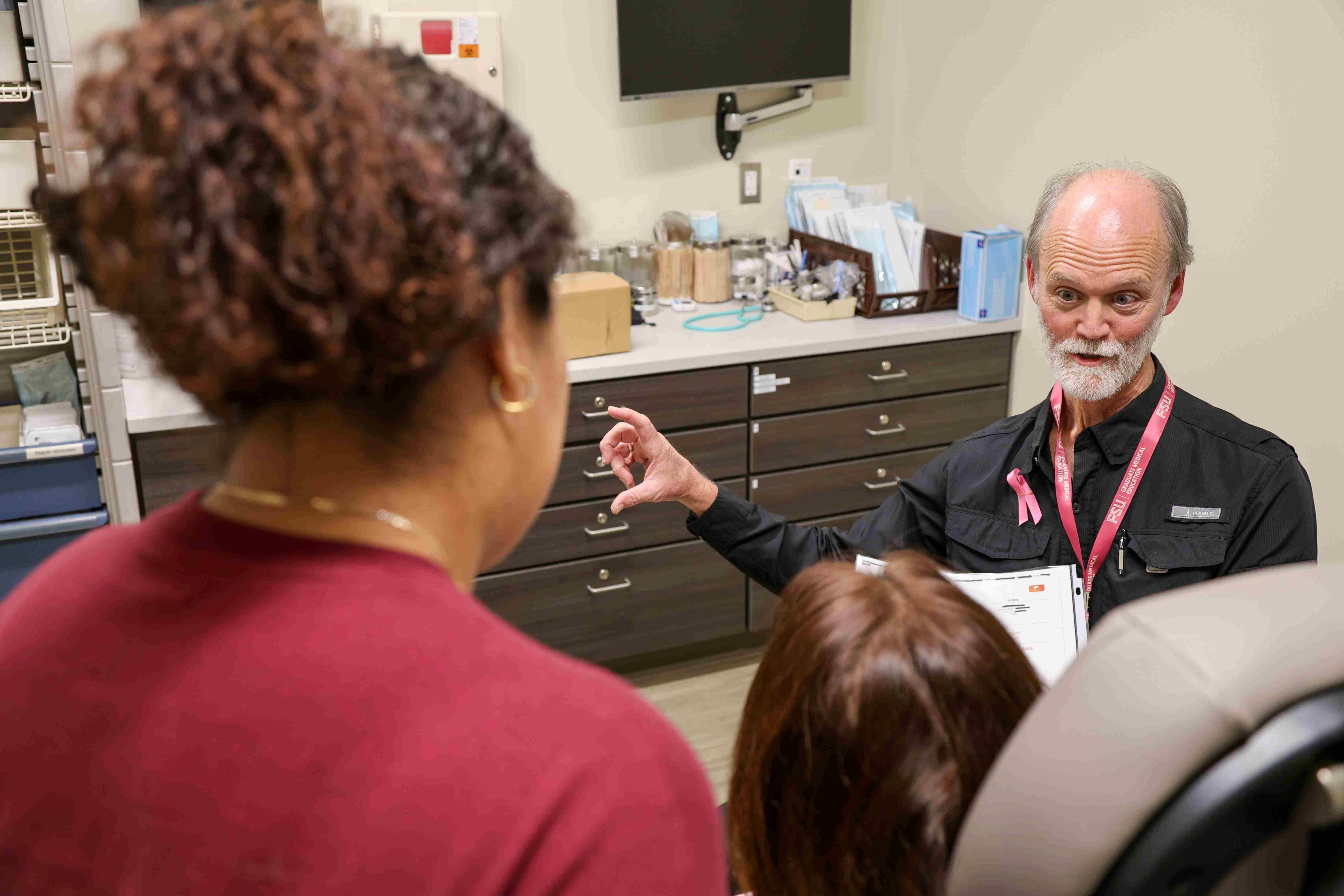Patient Stories
Florida Healthy Liver Program™ promises a brighter,
healthier future for those with liver disease
By Patrick Crowley
FSU College of Medicine
Gabriella,15, has a beautiful smile that can light up a room and talks enthusiastically about her volleyball and flag football teams. Her sunny personality is infectious!
Susan Hayes, 67, is a retiree, soft-spoken and thoughtful. Originally from Michigan, she moved to North Florida to be close to her children.
Gabriella and Susan have something in common. Both benefited from a simple scan that revealed a startling indication — an unhealthy liver — but for different reasons. For Gabriella, after further testing, she was diagnosed with liver steatosis (formerly called a fatty liver), mostly due to a sedentary lifestyle, her weight and a diet rich in carbs (think white bread, pastas, snack foods, sugary drinks and the like). Susan was diagnosed with autoimmune hepatitis. “Basically, my immune system is attacking my liver and causing cirrhosis,” she said.
Their similarities may end there, as Gabriella’s condition has improved dramatically in just seven months with diet modification and exercise, while Susan’s condition is being addressed with medication. But had it not been for a Fibroscan™ in their primary care physician’s office, their conditions could have gone undetected for months or years as their livers slowly succumbed to disease.
According to Dr. Scottie Whiddon, Susan and Gabriella’s primary care physician and co-medical director of FSU PrimaryHealth™, this early detection underscores the need to get these devices — in this case an Echosens Fibroscan™ — into the hands of primary care physicians.
“We’re the initial point of care,” he said. “We’re the soldiers on the ground. “Our goal is to not only find people early but educate everyone about the impact this simple scan can have when it comes to early diagnosis and treatment.”
Whiddon and a cadre of other like-minded physicians and health care providers believe so much in the tremendous benefit of this scanner that they established the Florida Healthy Liver Program, a collaboration between FSU Health and Mayo Clinic Florida based at the FSU College of Medicine. They are now conducting a feasibility study to see if getting these scanners into the hands of primary care physicians will lead to early diagnosis and better care.
“Dr. Cyneetha Strong (co-medical director of FSU PrimaryHealth™), visited the Mayo Clinic in Rochester and presented our initial data,” Whiddon said. “In the first six months, 55 adult and pediatric patients underwent a scan. A total of 42% demonstrated both liver fibrosis and steatosis. The scanner is an incredible tool and it’s simple. You can do a point-of-care scan in just a few minutes.”
Those few minutes can spare patients months of more aggressive treatment — and potentially a liver transplant — since the issue would be diagnosed at its earliest stages.
“I was scared at first,” Gabriella said, “but after the doctor explained it, I felt a lot better. Before I found out, I wasn’t doing anything. I was just being homey and lazy.”
But the advice given by her physicians hit home.
“I joined a sport — which helped me, because I started exercising almost every day,” said Gabriella, whose mother, Rosaria, asked that neither one of their true names be used, due to Gabriella’s age. “I couldn’t eat junk food because I was involved in sports and being in sports really helped.”
Her mom agreed, saying, “I saw that she herself made the decision to go on a diet, eat more vegetables, exercise. She started one sport and then started another one. I saw she was the one who wanted to change and that she was the one who made those changes. She was the one who really spearheaded the effort.”
Susan’s journey started innocently enough. When she moved from Michigan, she wanted to get established with a primary care doctor.
“When I moved to Tallahassee, I didn’t know anything,” she said. “I didn’t know the doctors, but I did, or course, recognize Florida State University so, I thought, that would be a good place to look. Being from Michigan, we had Michigan State and the University of Michigan Health System connected to universities, which I think is important.”
Another thing Susan and Gabriella have in common is that neither had symptoms that would make them suspect a liver disorder.
“I was surprised,” Susan said. “I had no idea what it was. I have no family history of liver problems and I was having no symptoms.
It was Susan’s bloodwork that tipped off Dr. Whiddon, who then suggested the liver scan.
“When we did her labs and her liver enzymes were up a little bit, I said, ‘well, you know, we’ve got this new machine. Let’s just check you out and see. It’s probably liver steatosis,’ ” Dr. Whiddon said. “I can’t recall if she was an S3 or an S4, but she was an F4.”
Liver steatosis, is graded on a scale of S0 to S4, with 0 meaning not fatty, and 4 being severely fatty. Liver fibrosis is based on a scale of F0 to F4, with 4 meaning the patient has progressed to cirrhosis.
Susan and Gabriella are just two examples of many patients who could benefit from a liver scan, but in order to get this tool in the hands of primary care physicians, help is needed. According to Dr. Whiddon, the cost of a new scanner is close to $400,000, a prohibitive cost for primary care clinics such as FSU PrimaryHealth™. Whiddon said a goal of the current feasibility study is to determine if these machines can make a difference in patients’ lives and, in the end, lead to early diagnosis, less aggressive treatment and, therefore, reduce the overall cost of care.
So far, the study is quickly proving these assumptions to be true. With data in hand, and stories like Gabriella’s and Susan’s, the Florida Healthy Liver Program is approaching industry partners and private donors to help fund the cost of scanners so they can be placed in more physician offices.
What does the future hold? For Susan, it means controlling her ailment with medication and routine checkups. For Gabriella, her mom says she hopes it leads to a healthier lifestyle and, if the scanner becomes more prevalent in physician offices, a healthier community.
“This would be a great help to other people,” Rosaria said. “And, if Gabriella can do it, you can do it. You just have to push yourself to better yourself, but you can do it!”





